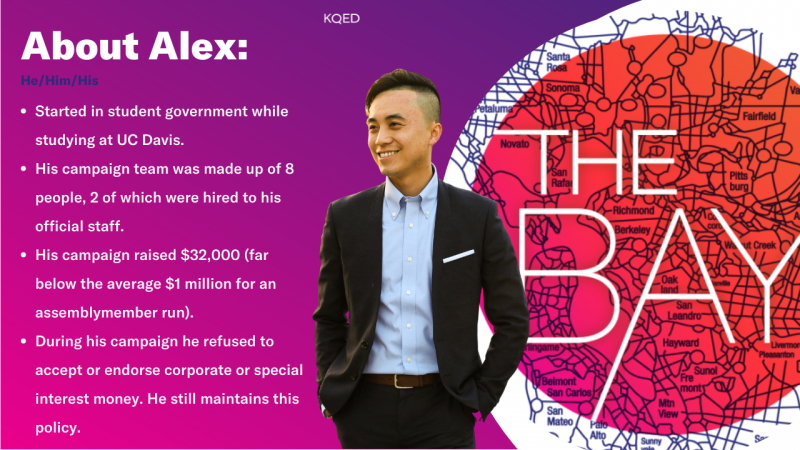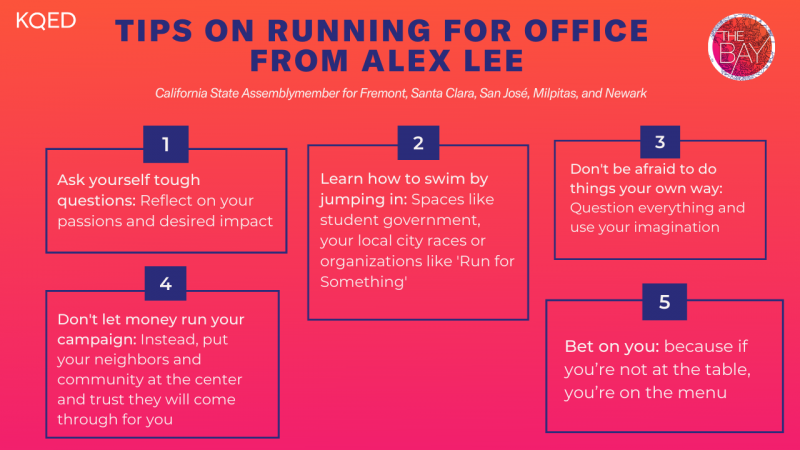The Bay’s How-To newsletter series (sign up here) is an extension of By The People, a series of episodes looking into how democracy functions in the spaces around us — and where, exactly, each of us can plug in. These features include change-makers who have learned how to get involved locally and who are now sharing their step-by-step guide with you.

The 2016 presidential election motivated many to get involved in politics, as seen through a higher voter turnout, and more women than ever running for office. Social inequalities were made visible during the pandemic, and specifically, the ongoing deaths of Black Americans at the hands of police propelled people to the streets. It marked the summer of 2020 as the biggest protest for racial justice in a generation, and the Bay Area was no exception. Throughout the region, specifically in downtown Oakland and San Jose, a number of young queer people of color decided to run for office in the cities they called home.
One of them was Alex Lee. Right before the pandemic, Lee, Bay Area born and raised, moved back home with his parents in San Jose. He had been in Sacramento working for state Sen. Henry Stern crafting public safety, education, housing and senior-related legislation. Still, Lee felt disconnected from his neighbors. Then, Assemblymember Kansen Chu announced in 2019 that he would not be seek reelection for the 25th Assembly District that’s made up of parts of Alameda and Santa Clara counties. Lee decided to run for office.
Thinking ahead, he decided to take on the role of field representative for Silicon Valley Assemblymember Evan Low, so that he would be ready to run for office. Lee believes the pandemic showed how government can be effective, a direct tool in improving people’s lives, but it needed to be improved and modernized. When Lee told his parents of his future plans, they said he was young enough to go for it. “I could literally restart my life four times and still be the age of my current surviving grandma,” Lee said.
In November 2020, Lee won his race for state Assembly and became the youngest state legislator in almost a century, representing the 25th Assembly District. He’s also the first openly bisexual state legislator in California history. While there are many ways to run for office, Lee’s journey and tips highlight his unique experience of running for office during a pandemic.
Lee is now serving in Sacramento. We caught up with him last month to put together tips from his experience running for office. Here are his tips:

1. Ask Yourself Some Tough Questions
A crucial first step in running for office is getting real with yourself. Lee says the question he asks everyone who is considering running for any level of office is, “Do you feel passionate enough to do the job? And, do you feel educated enough to know the job you want to do?”

